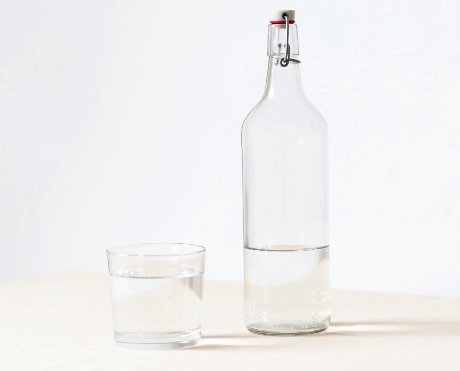
The last year was a tough one for everyone.Many traditional summer activities were sacrificed in an attempt to prevent the further spread of COVID-19.As things gradually return to normal, many people are planning to enjoy outdoor activities again this summer.
Outside gatherings are a good option for safely spending time with friends and family members.
One hazard to be mindful of, however, is dehydration.While it can impact people of all ages, older adults are at an increased risk.
Heres what you should know as we head into the hottest days of summer.Dehydration Risk for SeniorsOlder adults are prone to dehydration for a variety of reasons.A leading factor is the age-related changes the body goes through.These changes can weaken a seniors sense of thirst, while also making it more difficult to regulate body heat, especially with fluctuating humidity and temperatures.
When the body is too hot, it begins to sweat in order to cool down.This causes a loss of fluid.High humidity also prevents sweat from evaporating and cooling the body.
The bottom line in of all of this is an increased need for fluid intake.When fluids arent replaced, the result can be serious health consequences and possibly even death.How much hydration do you need to consume in a typical summer day to be safe?The general rule of thumb is to drink 8 glasses of water a day.If you will be outdoors on a hot day, you should also consume 1620 ounces of fluids before heading outside.
Always continue drinking water while you are outside in the heat.If you arent fond of water or struggle to drink as much as is recommended, there are foods that have hydrating benefits.Fruits and vegetables top the list.While sodas, coffee, tea, and other caffeinated beverages technically count as fluids, health professionals dont recommend them.
Thats because caffeine acts as a diuretic to the body which leads to greater fluid loss.Warning Signs of DehydrationSome of the symptoms of dehydration are familiar to people, while others arent.Taking time to learn the signs of dehydration is important.In the early stages, signs of dehydration often include being thirsty, feeling restless, and even irritability.
If the situation isnt addressed, here are additional symptoms of dehydration:Listlessness Headache Muscle cramps Sunken eyes Dark urine Decreased urineDehydration can become a life-threatening condition if any of these signs are exhibited:Confusion or disorientation Difficulty walking Problems with coordination Vomiting Diarrhea Rapid heart rate FaintingCall 911 immediately if a senior loved one is experiencing the symptoms outlined above.Preventing Dehydration in an Older AdultIn addition to drinking water and consuming foods that hydrate, reducing the fluid loss caused by perspiration also helps.Here are a few ways for minimizing perspiration:Invest in breathable clothes: Wear clothing made of lightweight fabrics.This will allow air to circulate and keep an older adult cool.
Cotton and linen are usually best.Watch the clock: The sun is usually at its peak between 11 a.m.and 4 p.m.
By planning outside activities around those times, you can lower the risk of dehydration.Use the air conditioner: Encourage a senior loved one to stay inside and use their air conditioner on hot days.Some may resist doing so in an attempt to keep utility costs lower.
It they dont have air-conditioning, create a list of cool places they feel comfortable going when its hot, such as their favorite shopping mall, coffee shop, or bookstore.Enjoy a Safe, Summer PicnicJuly is National Picnic Month.If your summer plans include a backyard gathering or a picnic at one of your favorite parks, we have some important information to keep in mind.The article 6 Food Safety Tips for Your Summer Picnic shares potential concerns to be aware of when you plan an outdoor party.
Disclaimer: This story is auto-aggregated by a computer program and has not been created or edited by Senior Savings Deals.
Publisher: Sunrise Senior Living ( Read More )
Publisher: Sunrise Senior Living ( Read More )

